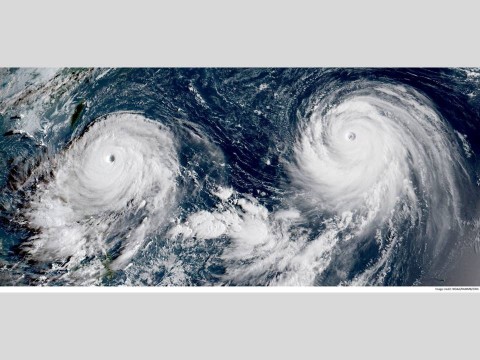PHL Study Shows Increasing Trend in Extreme Tropical Cyclones

Call for Papers!
December 11, 2016
Junior Research Scientists group of ECCRI named one of the Ten Accomplished Youth Organizations (TAYO) of the Philippines
December 11, 2016An analysis of Philippine tropical cyclones in the last 63 years was recently published online by the International Journal of Climatology, an international peer-reviewed scientific journal publishing research in the field of climatology. Entitled “Observed Trends and Impacts of Tropical Cyclones in the Philippines,” the article found that while there was no observed increase in the number or frequency of tropical cyclones (TCs) affecting the Philippines, there was noted a “slightly increasing trend” in the number of extreme TCs landfalling in the country.
The study also noted a few other observations:
- No significant trends in the annual number of TCs
- The number of landfalling TCs has decreased, and
- Initial analysis on TC-associated rainfall shows that the largest contribution of TCs to rainfall was in the Northern Philippines (up to 50%), while the lowest amount of rainfall associated with TCs was observed in the southernmost parts.
Another important finding of the study is the increasing trend in losses and damages due to TCs, which are further influenced by other socio-economic factors such as land use practices. Rainfall variability, increased TC intensity and other changing climate patterns are ever increasing our vulnerabilities to floods, droughts, landslides and other climate-related disasters.
In addition to [funding] support from the OML Center, two of the article’s authors are from the Center – Scientific Director, Dr. Rodel D. Lasco, and Scientist, Rafaela Jane P. Delfino. The online early view of the article can be accessed here. For a full report on the country’s climate, check out the State of the Philippine Climate 2015, or download the full report here. The report was a collaboration between PAGASA and the OML Center.

